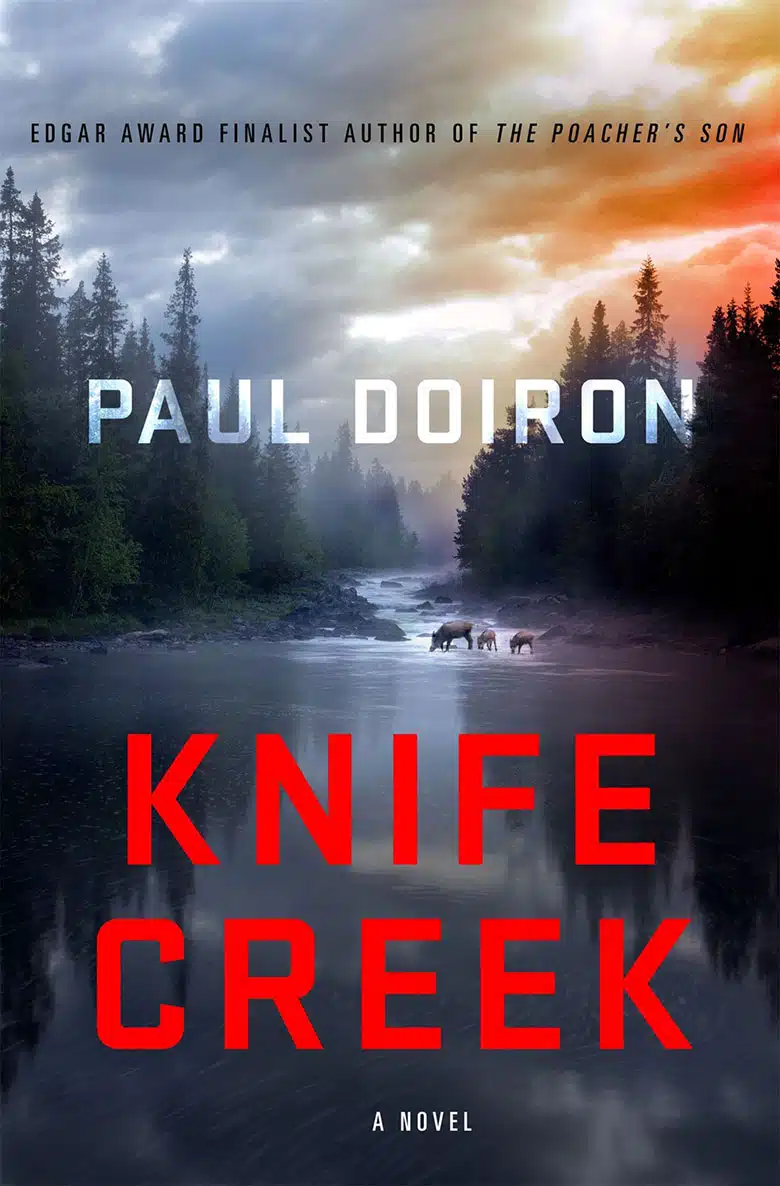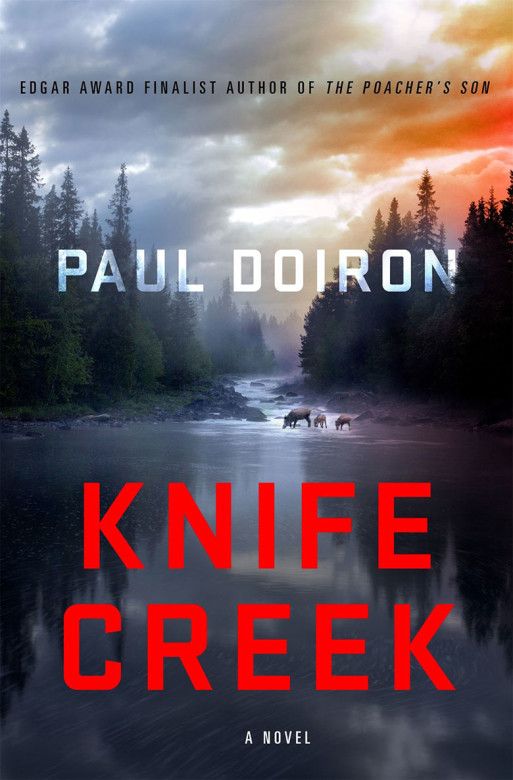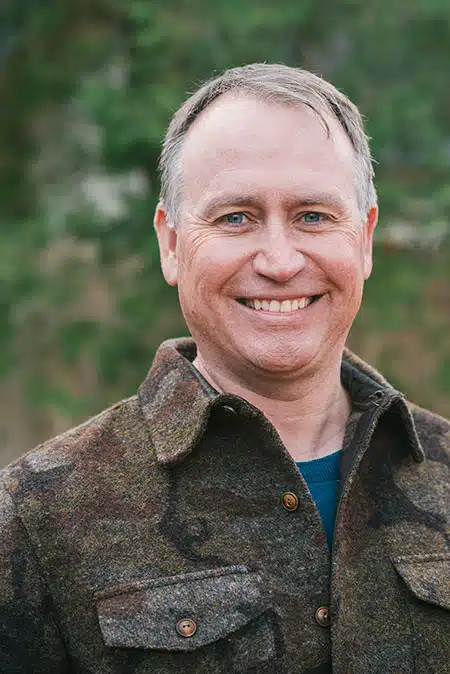Maine Noir | The Yankee Interview
When The Poacher’s Son, the first novel by former Down East editor in chief Paul Doiron, hit the bookstores in 2010, it garnered near-instant acclaim and won the Strand Critics Award for best first mystery novel and a Maine Literary Award for best fiction, as well as a coveted Edgar Award nomination. It’s the story […]

Coffee By Design | Portland, Maine
Photo Credit : Katherine Keenan
When The Poacher’s Son, the first novel by former Down East editor in chief Paul Doiron, hit the bookstores in 2010, it garnered near-instant acclaim and won the Strand Critics Award for best first mystery novel and a Maine Literary Award for best fiction, as well as a coveted Edgar Award nomination. It’s the story of a Maine game warden, Mike Bowditch, and his strained relationship with his father, a poacher who’s suspected of killing a cop; Doiron paints the woods of Maine in vivid strokes and infuses the story with both action and suspense. He has written eight more stories featuring Mike Bowditch, the latest of which, Knife Creek, debuts June 13. The Maine native talked with us about his writing process, and what readers can expect in the new novel.
Maine is really a character in your books, and specifically a side of Maine that I don’t think a lot of people see. How did the backwoods and smaller towns and people in them come to play such an important role in the series?
Well, I grew up in Maine—my family is from Sanford originally, but I grew up in Scarborough. I come from a family of mill workers, and growing up I had relatives who were working as dishwashers and those sorts of jobs. I was fortunate to have a very different kind of experience. I grew up in a suburb and I went to Cheverus High School in Portland and I got a Jesuit education, and then went to Yale. I’ve always felt as if I am a child of “the two Maines,” as they are often spoken of.
One of the things I’ve noticed—and I’m not alone, as someone who grew up in Maine—is that most of the fiction about Maine, especially before Carolyn Chute came along, is either focused along the coast or written by people who either summer here or have just made short visits. It’s not as if I set out to try to balance the scales in any way. It’s just that I found myself, especially because I was working at Down East at the time, really drawn to writing about the kinds of people that typically wouldn’t have been featured in Down East in years past, and those were people, as I say, that I knew really well, people who were not just family, but also friends. So, Maine is definitely a character. I think it’s a different character in every book. I try to move Mike Bowditch around from place to place, and very soon there’ll be a coastal book again, which maybe is more stereotypical Maine, but I hope to represent it as best I can.
So, what can you tell us about the new book?
I feel as though my series is almost more of a saga, in that it’s essentially the biography of this game warden. I try to write it so that anyone can pick up the new book and not need to know a whole lot about what’s happened before. But it’s really important to me that I begin every book by asking myself, where is Mike Bowditch at this moment, you know, in his life, both personally and professionally? And what I decided with Knife Creek is that he’s now living with his longtime infatuation-love, Stacey Stevens. And that’s generally going pretty well, until certain events emerge.
Tell us a little more about Stacey.
In her own way, she is even more impetuous and explosive than Mike. I wanted to put them together where they’re kind of testing each other that way. And Knife Creek begins with something that’s almost a speculative-fiction thing, which is that Mike is assigned to shoot some feral pigs, which don’t exist in Maine yet, though there’s a population of them in a few counties in New Hampshire. So the book begins with Mike and Stacey together in a pig wallow in the forest, and as they shoot these feral pigs that have been creeping across near Sebago Lake, in the Fryeburg area, they find the remains of an infant that one of the pigs is feeding on.
Wow.
Yeah, that’s a pretty grisly opening for one of my books. So the question is, who was this infant girl and under what circumstances was she left here? And what ends up happening is that Mike pretty quickly suspects that this baby was the daughter of a woman who disappeared on a rafting trip down the Saco River four years earlier and was thought to be dead all that time. So the question then becomes, how could a dead woman have had a baby? Where has she been and under what circumstances?
The story takes place in July and is centered on the whole party scene on the Saco River, from New Hampshire to western Maine, which is a part I hadn’t written about. It’s a summer book, which gives me a chance to do different things. Every one of the books takes place in a different month.
Why did you choose to write mysteries as opposed to, say, the great American novel?
I tried that, too.
How’d it go?
Not too well. [Laughs.] I’d been an English major at Yale, and my favorite writer is Hemingway and I read the whole canon of literature—or much of it, at least—and still do. I wanted to be a novelist since I was a kid and thought I was going to be a “literary” novelist, but I really had nothing to say—which is sad to admit—until I moved back to Maine when I was around 31. When I returned, a couple of things happened. One is that I met Kristen Lindquist, now my wife, and she pushed some contemporary mysteries into my hands. And I’d been a big mystery fan when I was younger; I read the entire Agatha Christie series, and Sherlock Holmes is still sort of a superhero to me. But she introduced me to writers like P.D. James and Tony Hillerman and Walter Mosley, a lot of writers I would never have picked up otherwise. And I thought, Wow, they are really good. I had been sort of snobbishly looking down my nose at them.
At the same time, I rediscovered my love for the Maine outdoors. When I sat down to write, I asked myself, what do I know about? I know about the Maine outdoors. What kind of thing do I want to write? A mystery. It wasn’t commercial for me. I wanted to have fun with it and not have this somber, self-serious feeling.
How has the character of Mike Bowditch evolved through the course of the series?
The concept of Mike as a series character came out of the fact that when I sold The Poacher’s Son, the question of who he is had taken hold of my imagination. He was so troubled and haunted and emotionally scarred, but I wondered, how in the world could I sustain this? I mean, nobody will want to read about this man for book after book unless I focus on his growth as a person, and get people to feel like they’re on his side and can see his maturing process. So I became really interested in that whole question. Mike is certainly not a conventional hero in The Poacher’s Son. How does someone become a heroic person? What has to happen to that person to get them to a place where they’ve managed to conquer a lot of their demons? And what do they have to learn, and what kind of experiences do they have to have? While I suppose there are some people who are kind of born heroes, I think the rest of us really struggle. And it’s a constant struggle, because you’re tested with every new experience and how you’re going to respond to it.
How have readers responded to him?
For many, it’s almost as if he’s an actual person. I’ll go on my Facebook page and harmlessly post some silly thing, and you wouldn’t believe how many times somebody will respond in the comments, What would Mike Bowditch do? I’m flattered they can even remember his name, let alone that he’s become three-dimensional for a lot of the people who read the books. That’s all I could’ve wished for.
Does Mike Bowditch feel three-dimensional to you?
Sometimes. Like a lot of writers, I have the experience of getting into the zone for certain passages or chapters—never an entire book. I feel like Mike himself sort of exists in that place. He isn’t me, thank God, but he does feel like somebody I could meet someday. And if so, he’d be very angry at me for all the ways I’ve punished him!
You’ve published a book every year since 2010. Does it take that full year to write each one?
It’s closer to nine months, with another three months spent deciding what I’m going to write. I have a lot of false starts. Some actually never make it to the page, or maybe I’ll start writing something and think, don’t do that, it’s not going to be a project that I want to spend months on.
Initially, when I went to writing novels full-time, I found myself a little bit adrift—not artistically, but in terms of my schedule. I’d gotten into a good rhythm in balancing my two lives. I live in Camden but my writing office is up in Belfast, which was a deliberate choice that I made just to give myself a commute again. I hadn’t had a commute for a few years and decided it might be good to give myself some time to mentally get into the job in the morning and to really get away from it as I was coming home. I end up writing about four or five hours and then sort of in fits and starts. I experience the normal distractions: Web stuff, email. But when your contract calls for delivering a book a year, it certainly keeps you on track.
You’re a registered Maine Guide. What led you to do that, and how has it informed your writing?
Being a Registered Maine Guide was going to be my fallback position if writing didn’t work out. [Laughs.] Of course, one of the ironies in my life—and this was more true when I was at Down East—is that here I was writing about the outdoors, but I was so busy I never had a chance to get outdoors. And that’s gotten a bit better over time. I don’t do guiding, but I’ve certainly taught people to, say, fly cast.
But the descriptions of Maine in my books, both the woods and the waters, as well as communities—that’s all stuff that I know, either from personal experience or my own recreational reading. I don’t have to go read a book about moose. Those parts of the books are coming out of my experience, as opposed to other parts where I really do have to go and learn about, say, if someone abandons a baby, what specific crime have they committed? That was something I had to find out while I was writing Knife Creek.
On your book tours, do you see differences between audiences in New England, who probably know Maine well, and audiences in the rest of the country?
I definitely get different questions when I’m out of state. In some cases, people show up who have some Maine connection—they went to camp here or used to live here or went to college here—and my books are a way of keeping a connection to that part of themselves. Other people, though, don’t know anything about the state. One of the complaints I get occasionally from Maine readers is I’m scaring people away from visiting Maine, that I’m sort of like … have you read any Stephen King?
But I think people are really curious about the Maine I am writing about. I really like that. Because people do have the cliché in their minds that it’s really lobsters and lighthouses, and I don’t know that there’re been a lighthouse in any of my books yet!

Photo Credit : Mark Flemming





Did read The Poacher’s Son. Great read looking forward to this one.
Just discovered Doiron’s novels and look forward to reading others. If you like the outdoors, action, and mystery they may tickle your fancy!
Love your books. Can’t read them fast enough! Thanks so much for hours of enjoyment. I am a Michigander, and it is nice to learn more about Maine. One thing…. How do you pronounce your last name?? Kathy